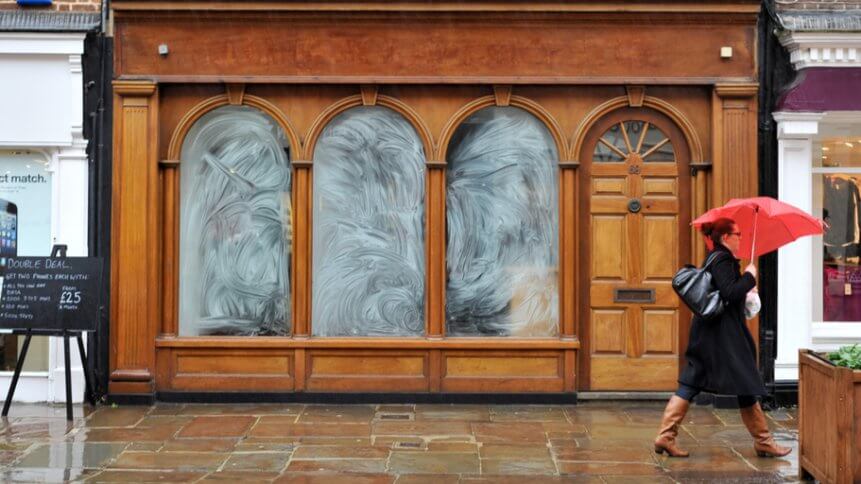‘Labouring’ to the wrong conclusions about UK retail

Empty shops should be given to startups, co-operative businesses and community projects to help Britain’s struggling town centers, according to the UK Labour Party.
Labour leader Jeremy Corbyn has described boarded up shops as “a symptom of economic decay under the Conservatives and a sorry symbol of the malign neglect so many communities have suffered.”
He is calling for local authorities to be given the power to reopen abandoned shops that have been left vacant for a year or more. This has not been well received by key retail sector players.
Neil Saunders, Managing Director of GlobalData Retail, tweeted: “A symptom of changing shopping habits and a punitive tax system. Playing party political games isn’t helpful. Not addressing the real issue— business rates— isn’t helpful. A state takeover of empty spaces isn’t helpful.”
Retail consultant Oliver Banks argued: “I can’t help but feel this proposal does nothing to address the actual challenges of the retail market. Sounds like a recipe for lots of future disaster as new businesses form without a feasible business model. Am I missing something?”
Simon Lyons, Managing Director at Central Retail Property Consultants, stated: “A deluded and completely inaccurate understanding of the problems facing the UK high street.
“Business rates, cheaper public transport, more residents/public facilities and car parking are the real issues, filling voids with any old tat is not the solution.”
A deluded and completely inaccurate understanding of the problems facing the UK High Street. Business rates, cheaper public transport,
more residents/public facilities and car parking are the real issues,filling voids with any old tat is not the solution
https://t.co/We0pUfYu02— Simon Lyons (@Acentral76Simon) August 17, 2019
Can you fix it?
Business rates are definitely a major issue here. Over 50 UK retailers, including Asda, Marks and Spencer, Sainsbury’s, Iceland and River Island, recently called on the government to do something about this.
A letter to the new Chancellor, Sajid Javid, coordinated by the British Retail Consortium, pointed out that UK retail remains the country’s largest private-sector employer, employing approximately three million people.
The industry accounts for 5 percent of the UK economy, yet is burdened with 10 percent of all business taxes, and 25 percent of business rates.
It asked for four fixes: A freeze in the business rates multiplier; fixing transitional relief, which currently forces many in UK retail to pay more than they should; Introducing an ‘Improvement Relief’ for ratepayers; ensuring that the Valuation Office Agency is fully resourced to do its job.
The letter claimed that implementation of these four recommendations “could be undertaken quickly, would reduce regional disparities, remove barriers to the proper working of market forces, incentivize economic investment, and cut away at least some of the bureaucracy of the current system.”
Richard Walker, Joint Managing Director, Iceland Foods, said: “Business rates are an outdated Victorian taxation system that has little relevance to our modern multi-channel retail economy.
“Fundamental reform of the system is the only way we will stem the decline of high street communities up and down the country.”
Not all doom and gloom
Amazon, which has been dabbling in pop-ups and opening Amazon Go stores, clearly believes that there is still a lot of money in brick-and-mortar retail. Indeed, talk of the high street’s demise is overstated.
Nonetheless, a significant number of UK retail members are not actively preparing for the future, with 35 percent admitting to having no business transformation strategy in place for the rise of digital technology and changing consumer habits, according to research by PushON.
Its survey of 100 retailers found that 20 percent has not invested anything in developing the digital side of their business in the past year. Of those that do have a strategy in place, only 27 percent said that they are currently progressing well with their transformation.
The research also found that just 26 percent of retailers believe digital transformation is crucial for them to survive in an increasingly competitive market.
For too long, physical retailers have been relying on traditional approaches to solve very modern problems.
Ultimately, if they spend time creating products people want, invest in stores and technology, focus on excellent customer service and also provide good value for money, they and the UK’s high streets will continue to remain relevant in these fast-changing times.









